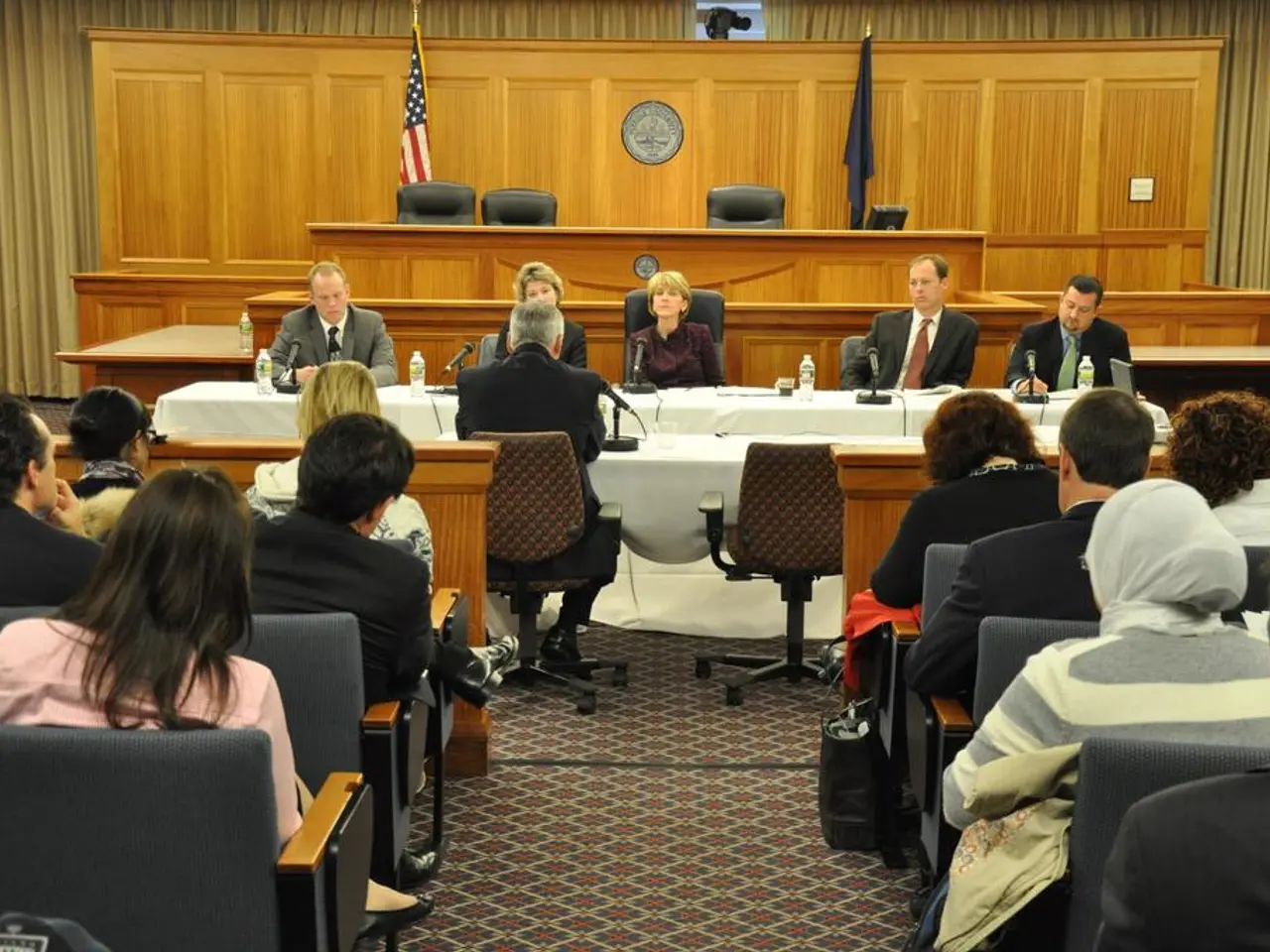In China, simply possessing a photo of the Quran is sufficient for the authorities to detain Uyghurs, according to a recent report.
In China, the Chinese Communist Party (CCP) maintains a firm grip on content deemed harmful or threatening to its authority, particularly in the region of Xinjiang where materials related to the Uyghurs are strictly controlled. While specific details about the "master list" of harmful content remain scarce, it is known that certain categories of materials are typically restricted.
One such category is religious materials, with the CCP suppressing practices and beliefs that it deems incompatible with its ideology. In Xinjiang, there is a significant crackdown on Islamic practices, symbolic of the broader effort to suppress religious freedoms.
Political dissent, including materials advocating for Uyghur rights or autonomy, separatism, or independence for Xinjiang, is another restricted area. Criticism of the CCP is heavily censored, often leading to severe penalties.
Anti-communist materials are also heavily censored, with literature, media, and online content that criticize the CCP or promote anti-communist views being a common target. The CCP is also cautious about materials that reinforce Uyghur cultural identity or promote ethnic solidarity, viewing these as potential threats to its assimilation policies.
The CCP employs extensive censorship and surveillance to monitor and control the flow of information. This includes the use of informants and pervasive digital surveillance to identify and suppress dissenting voices, both domestically and internationally.
Chinese police maintain a "master list" of around 50,000 video, audio, and photo files they claim contain violent and harmful content. Human Rights Watch analysed around 1,000 files flagged by police in more than 11 million searches during a nine-month period between 2017 and 2018. The master list includes gruesome beheading videos carried out by Islamic State, Mexican cartels, and other militant groups.
However, more than half (57%) of the flagged files are described as "common religious material" by Human Rights Watch. Anti-Communist material, including a documentary film detailing the events of the 1989 Tiananmen Square massacre, is part of the list. Only 9% of the flagged files contain explicitly violent content, and just 4% include calls for violence, according to Human Rights Watch.
The master list details are new, according to Human Rights Watch. The leaked database, which includes Radio Free Asia, a media outlet that receives support from the US government, is part of a larger Chinese police database that was leaked to The Intercept in 2019.
Criminalizing mere possession of material deemed extremist, even if the accused has no intent to use it to cause harm to others, is a severe threat to freedom of belief, privacy, and expression, according to HRW. Viewing a photo of the Quran in Xinjiang, China can reportedly lead to being designated a dangerous extremist by government officials.
The new master list offers insights into the mechanisms authorities use to carry out alleged systematic persecution of the Uyghur ethnic minority. Reports claim the Chinese government has persecuted and arbitrarily detained millions of Uyghur and other Turkic Muslims. Once detained, some of those prisoners are reportedly subject to torture, forced labor, and intense surveillance.
- Gizmodo reported that a leaked database, including materials from Radio Free Asia, a US-supported media outlet, revealed China's "master list" containing around 50,000 files, including anti-Communist material like a documentary about the 1989 Tiananmen Square massacre.
- The Chinese Communist Party (CCP) in Xinjiang heavily censors materials advocating for Uyghur rights or autonomy, separatism, or independence for Xinjiang, labeling them as politically dissenting.
- In China, certain religious materials, such as common religious texts, are often deemed extremist and their possession can lead to being designated a dangerous extremist by government officials.
- Beyond violent content, the future of technology and trends in censorship and surveillance could be a significant concern as China employs extensive measures to control and monitor the flow of information, such as digital surveillance and the use of informants.






